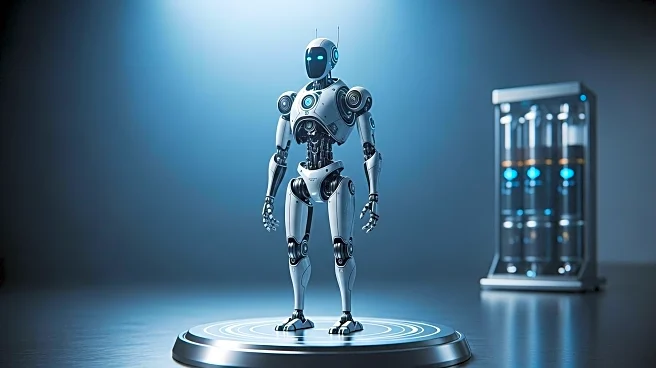What's Happening?
Circus SE has announced the successful commencement of mass production for its fourth-generation CA-1 AI robots at a newly established high-volume production facility. This development marks a significant milestone for the company, which specializes in AI-powered robotics for autonomous nutrition systems. The CA-1 robots, consisting of over 29,000 components, are being manufactured at an industrial scale, with several units already in parallel production. The facility is designed with an intelligent, modular setup that ensures scalability and agility, allowing Circus SE to execute mass production efficiently. Each robot undergoes more than 150 precision tests to ensure enterprise-grade reliability, akin to standards in the automotive industry. This achievement underscores Circus SE's capability to transition from development to industrial scale-up, positioning the company as a leader in autonomous nutrition technology.
Why It's Important?
The mass production of CA-1 AI robots by Circus SE is poised to have a substantial impact on the global food supply chain, particularly in the realm of autonomous nutrition systems. By scaling up production, Circus SE is enhancing its ability to meet growing global demand for innovative food production solutions that require minimal human input. This development could lead to increased efficiency and reliability in food supply processes, potentially reducing labor costs and improving food security. The collaboration with Celestica, Circus SE's global production partner, further strengthens the company's manufacturing and supply chain capabilities, enabling a seamless transition from prototype to high-volume production. As Circus SE continues to expand its production capabilities, it may influence the broader robotics industry, encouraging advancements in AI-powered systems across various sectors.
What's Next?
Circus SE plans to extend its industrialization efforts by bringing its second autonomous robotics system, the CA-M, designed for defense and military applications, to high-volume production next year. The company is exploring additional production options across Europe and the U.S. to support this expansion. As Circus SE continues to scale its operations, it may face challenges related to maintaining quality standards and managing supply chain complexities. Stakeholders, including industry leaders and policymakers, will likely monitor these developments closely, considering the potential implications for both civilian and defense sectors. The successful deployment of CA-1 robots in the coming weeks will be a critical step in Circus SE's rollout plans, potentially setting the stage for further innovations in autonomous systems.
Beyond the Headlines
The industrial-scale production of AI robots by Circus SE raises important ethical and cultural considerations. As autonomous systems become more prevalent in food production, questions about the role of human labor and the potential displacement of workers may arise. Additionally, the deployment of AI-powered robots in defense applications could spark debates about the ethical use of technology in military contexts. Circus SE's advancements may also influence regulatory frameworks, prompting discussions on safety standards and the integration of AI systems in critical infrastructure. Long-term, these developments could lead to shifts in societal norms regarding automation and the balance between human and machine roles in various industries.










